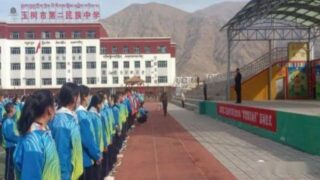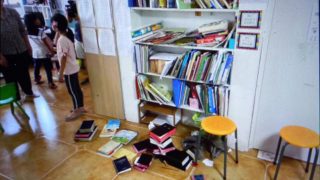The “Administrative Measures for Off-campus Training Materials” confirm that the crackdown on private tutoring is about ideology, not money only.
by Wang Zhipeng


On September 1, the Chinese Ministry of Education published its “Administrative Measures for Off-campus Training Materials for Primary and Secondary School Students.” By “off-campus training,” the CCP means the private tutoring services that help students preparing for the difficult Chinese exams. The crackdown on this multi-million-dollar market has been presented as a way to save money tutors milk out of struggling families, while realizing Xi Jinping’s goal of “common prosperity” by preventing the children of the rich from gaining advantages in the competitive Chinese school system thanks to their access to expensive private tutoring.
The equalitarian aim may be real, but it is also true that tutoring companies, many of which are based abroad, elude the ideological control of the CCP.
The new regulations on textbooks and other materials used by tutors fully confirm that ideology is very much a party of the measures. They ask that all teaching material should be revised and only textbooks and subsidies may be approved that:
“(1) Take a firm political stand, supporting the leadership of the Communist Party of China and the socialist system with Chinese characteristics, and have a correct world outlook on life and values;
(2) Fully implement the Party’s education policy […];
(3) The compiling and developing personnel of subject training materials should accurately understand and grasp the curriculum plan and subject curriculum standards […];
(4) Abide by disciplines and laws, have a good ideological and moral character, social image, and have no bad records such as dishonesty or violation of law.”
Furthermore, the teaching materials should be “guided by Xi Jinping Thought on Socialism with Chinese Characteristics in the New Era, and embody the core values of Socialism,” should avoid any criticism of the CCP and its leaders or “distortion of the Party’s history” (read, deviate from the official version of the CCP history). They should not damage China’s “territorial integrity” (read, mention Tibet, Hong Kong, or Taiwan in ways different from the official prescriptions) or “undermine ethnic unity” (read, dispute the official narratives that minorities are fully respected in Xinjiang, Inner Mongolia, or elsewhere), nor can they include violent or sexually explicit contents.
Absolutely banned are the textbooks “propagating religious teachings, doctrines, canons, or xie jiao, or feudal superstitions, etc.” This provision of article 8 number 6 of the new regulation clearly indicated that one of the aims of the crackdown on private tutoring is to prevent student from accessing contents about religion from private tutors, including these based abroad.









